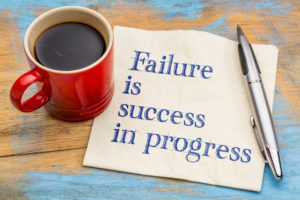There isn’t a leader who has never faced a challenge before. They are tried and tested. They have faced heartaches and triumphs but there are still many misconceptions about the challenges they face.
Misconception #1: Building a trusting team is EASY.
When you put a group of people together, you can not assume you will have a high functioning trusting team by default. Each person comes to the group with different knowledge, skills, and abilities. It is part of a leader’s responsibility to know what some of these knowledge, skills, and abilities are so they can be leveraged to work toward a common vision. To do so, trust must be built. It is the foundation of the team and without trust, you will not get results because people will fail to commit to the vision and hold yours.
Building a trusting team takes time and effort. You are bringing together people of different backgrounds and experiences. You cannot expect everyone to “just trust each other”. The members of the team must get to know each other as people first and have a clear understanding of their roles and responsibilities as they work toward a common goal. They need to be able to depend on each other to “get the job done”. It is not an easy task when team members are “me” focused versus “we” focused. There is a time and place to work on individual goals but they must be aligned with the common goal to be supported by the team.
Misconception #2: A leader does not need to ask for feedback.
Not asking for feedback is like saying, “Go ahead, run through the minefield. Nothing will happen.” Asking for feedback is crucial. As a leader, you must take the time to ask for and listen to the feedback offered by the people who work alongside you. They are at the frontline and can offer valuable input into the impact of daily operations. People are more engaged when asked for their opinion on things.
Misconception #3: Criticism is bitterness and should be discarded.
Even though criticism is hard to hear at the best of times, there is a lesson to be found. Ask yourself or the person offering the criticism what the ideal situation would look like. You may learn that information may have been miscommunicated or not communicated at all. When someone criticizes something, they obviously have a vision of what could be better so ask. The other thing to remember is not to take the criticism personally as it is someone’s opinion and not necessarily yours. What is the lesson to be learned? What can be improved?
Misconception #4: It is acceptable to let a setback set you back.
We hear so much talk about being vulnerable and as a leader, it is important to know how much to share and how much a setback will hold you back (and it better not for long or another leader will take your place). Your followers need someone to look up to in the face of setbacks. They need someone to continue to believe their skills and abilities to work toward a vision. They need to be reminded that setbacks are temporary and it is through action that new results can be achieved. A leader sets the tone for setting up the comeback from any setback. They may share their concerns; however, they must stand in confidence and stay motivated. The people see their leader as a role model and will do the same.
Misconception #5: To lead change, you must be at the helm 100% of the time.
Leaders are leaders because they lead, inspire, and build people. They know when they must step to the side and let their people demonstrate their knowledge, skills, and abilities. They encourage creativity and innovation. They want to hear suggestions and ideas about how to become better. To do so, the leader must walk alongside their people to help them step up and into their potential. The leader does not have to be at the front the whole time. A leader must be able to share a clear vision for the people ensuring all actions align with the team’s core values.
If leaders led with conviction based on these misconceptions, there would be no followers. People need a leader who is willing to work toward building a trusting team and engaging their people in the process. A leader must trust in the knowledge, skills, and abilities of the people hired to do the work and support them in areas that require growth. A leader needs to be open to feedback and appreciate different perspectives. A leader needs to lead with confidence and share the helm with those who have strengths that the leader does not possess to be successful in facing new challenges and adventures placed before them.
What are some of the misconceptions you have encountered as a leader?
DEBRA KASOWSKI, BScN CEC is an award-winning best-selling author, transformational speaker, blogger, and Certified Executive Coach. She has a heart of a teacher and is certified in Appreciative Inquiry and Emotional Intelligence. She is a contributing writer for Diversity and Fabulous at 50 magazines. Debra Kasowski International helps executives, entrepreneurs, and organizations boost their productivity, performance, and profits. It all starts with people and passion. www.debrakasowski.com

 they need to be Specific, Measurable, Achievable, Realistic, and Timely. Once you have the goal, you can come up with strategies to achieve it – otherwise, you will wander aimlessly.
they need to be Specific, Measurable, Achievable, Realistic, and Timely. Once you have the goal, you can come up with strategies to achieve it – otherwise, you will wander aimlessly. nd how you want it done or not done. Start delegating small projects or tasks and as you feel comfortable delegate more. You need to focus on your strengths on what you do well.
nd how you want it done or not done. Start delegating small projects or tasks and as you feel comfortable delegate more. You need to focus on your strengths on what you do well.


 The use of Facebook Live Video will only continue to grow in numbers and you do not want to lose the opportunity to showcase your work and the solutions you offer. Wondering how to use it? A couple tips before you get started: choose a location with good lighting and free from a lot of background noise and ensure you have a strong Wi-Fi connection. Hold your camera at eye level so we can see your face. If you give your viewers a heads-up as to when you will be shooting your Facebook Live Videos, you will give more people an opportunity to plan to join
The use of Facebook Live Video will only continue to grow in numbers and you do not want to lose the opportunity to showcase your work and the solutions you offer. Wondering how to use it? A couple tips before you get started: choose a location with good lighting and free from a lot of background noise and ensure you have a strong Wi-Fi connection. Hold your camera at eye level so we can see your face. If you give your viewers a heads-up as to when you will be shooting your Facebook Live Videos, you will give more people an opportunity to plan to join